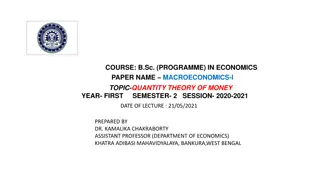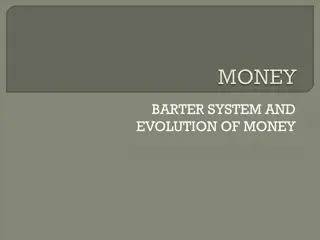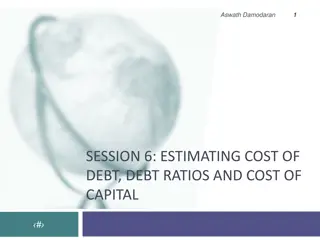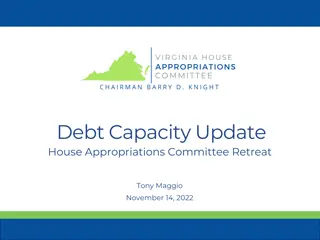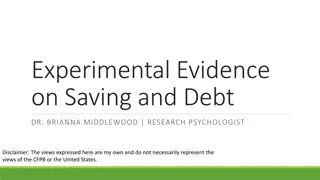The Link Between Money, Debt, and Mental Health
Conducting research, developing policy solutions, and working to break the connection between financial difficulties and mental health issues. People in debt are more likely to experience mental health problems, increasing the risk of suicide. The psychological impact of debt leads to feelings of hopelessness and being overwhelmed. Expert insights shed light on the struggles faced when financial instability affects every aspect of life, causing isolation, stress, and a sense of worthlessness.
Download Presentation

Please find below an Image/Link to download the presentation.
The content on the website is provided AS IS for your information and personal use only. It may not be sold, licensed, or shared on other websites without obtaining consent from the author.If you encounter any issues during the download, it is possible that the publisher has removed the file from their server.
You are allowed to download the files provided on this website for personal or commercial use, subject to the condition that they are used lawfully. All files are the property of their respective owners.
The content on the website is provided AS IS for your information and personal use only. It may not be sold, licensed, or shared on other websites without obtaining consent from the author.
E N D
Presentation Transcript
WHO WE ARE The Money and Mental Health Policy Institute is an independent charity, committed to breaking the link between financial difficulty and mental health problems. WHAT WE DO We conduct research, develop practical policy solutions and work in partnership with both those providing services and those using them to find what really works.
People experiencing mental health problems are three and a half times more likely to be in problem debt. Half of British adults with a debt problem also have a mental health problem.
Financial difficulties and suicidality
Nearly a quarter of people who attempted suicide last year were in problem debt People in problem debt are three times as likely to have thought about suicide in the last year.
100,000 people in England attempt suicide while in problem debt each year.
The psychology of problem debt Feeling trapped Overwhelmed A burden to others Hopeless
Not having enough money means almost every part of life becomes a struggle... always being hungry, or cold, not being able to socialise with others, stressing about every bill and every penny you spend, and the many, many other ways that struggling financially has an impact on your life, chips away at will tolive. Expert by experience
To be in debt and to have people calling up to fifteen times a day, to have your voicemail full, to have the postman open your letterbox with even more debt letters with even more threats is too much for anyone. You think your life isn't worth living. Expert by experience
Recommendations for Health and Social Care Establish routine enquiry Offer financial difficulty training for practitioners Integrate money advice in mental health settings
Recommendations for LocalAuthorities Recognise financial difficulty as a risk factor for suicide Improve collections practices Make every contact count
Recommendations for firms and regulators Reduce the frequency of outbound collections calls Reconsider prescribed content Reframe standardised letters
Will youhelp? Sign the petition for our Stop the #Debtthreats campaign, and help us change the law about letters from creditors https://www.moneyandmentalhealth.org/debt-threats/ Join our professional network and support our research https://www.moneyandmentalhealth.org/community/mon ey-and-mental-health-professional-network/







